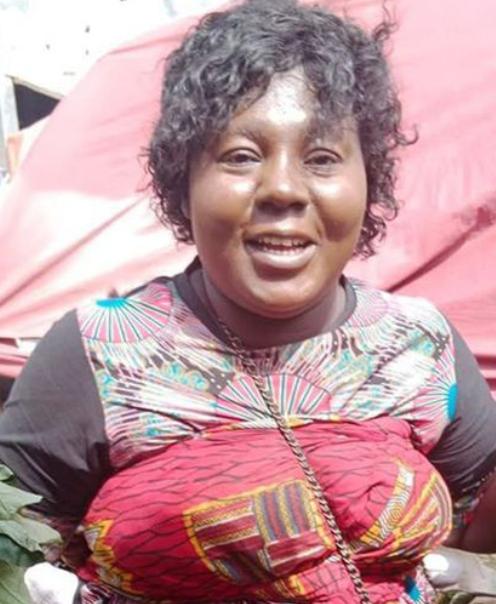
Daughter Sparks Family Feud After Choosing Mother’s Maiden Name on Burial Printings

In the midst of grief, one woman has taken to social media to share the unexpected drama that unfolded following the passing of her beloved mother. What should have been a moment of solemn remembrance and respect turned into a heated family dispute when her father’s relatives criticized her decision to honor her mother with her maiden name on all the burial printings instead of using her late father’s surname.
The woman, identified as Eniola M. Adeniji, laid her heart bare in a post that has since drawn widespread reactions. According to her, the issue began when her father’s family noticed that every material prepared for her mother’s burial—ranging from obituary announcements to printed programs—bore her mother’s maiden name instead of the family surname. To them, this was an affront, but to Eniola, it was simply the truth and a decision grounded in her mother’s identity and dignity.
“My Father’s family dragging my ass because all burial printings has my Mum’s maiden name as her surname,” she wrote with a mix of frustration and dark humor. “They’ve been separated for over three decades even before his death, but somehow I’m supposed to put his name as her surname on her death certificate and burial printings.”
Her words carry a piercing honesty about the realities many families choose to ignore. For over 30 years, her parents had lived apart, and her mother had reclaimed her independence in every way. To Eniola, that meant her mother’s burial should reflect who she truly was, not a forced association with a man and a family that had long severed ties.
But the tension did not stop at names and documents. She went further to reveal how deeply painful it was to hear criticisms from people who had done little to nothing for her mother while she was alive. “It’s obvious they didn’t get the memo, that the woman that they cut off her legs indeed gave birth to a daughter with wings,” she stated, in a metaphor that expressed both pride and defiance. Her words painted a picture of a daughter who not only carried her mother’s legacy but also refused to let anyone rewrite her story.
In a poignant part of her post, Eniola reminded critics that for over 15 years, she had been her mother’s primary caregiver, and for almost six of those years, she tended to her during her illness. Altogether, that was 21 years of selfless love and responsibility—far longer than many relatives had even stayed in contact. To her, the right to decide how her mother would be remembered was earned through sacrifice and devotion. “Ain’t nobody able to key me about not giving us anything for her burial,” she declared, underscoring the fact that she alone bore the responsibility of giving her mother a befitting farewell.
The story highlights a reality familiar to many African families, where issues of names, traditions, and ownership often clash with personal truths and lived experiences. In patriarchal settings, the expectation is often that a woman’s identity remains tied to her husband’s family even after separation or neglect. But for daughters like Eniola, who shoulder the responsibility of care, love, and loyalty, the question remains—who truly has the right to define a woman’s legacy?
Her post has since resonated with countless people who recognize themselves in her struggle. Many shared that they, too, had experienced similar tensions when organizing burials, where relatives who were absent during life suddenly emerged to dictate traditions in death. Others praised her courage for standing her ground and refusing to erase her mother’s identity to please extended family members who had long abandoned her.
It also raises broader questions about how society views women’s identities after marriage. Is a woman forever tied to her husband’s surname, even if the marriage breaks down? Does separation or decades of absence erase her maiden name, the one she was born with and lived by? And should extended families have the final say in such deeply personal matters, or should it rest solely in the hands of those who actually walked with the deceased through life and suffering?
The clash between tradition and modern realities is not new, but stories like Eniola’s bring it to the forefront in a deeply personal way. Her decision to prioritize her mother’s maiden name was more than just a symbolic act—it was a statement of autonomy, love, and truth. To her, burying her mother under her ex-husband’s name would have been a disservice to the years of strength, independence, and resilience her mother embodied after their separation.
Beyond the family squabble, the story reveals an underlying truth about grief—it does not always come in peace. For many, the death of a loved one is not just a time to mourn but also a moment when unresolved family conflicts, buried resentments, and unspoken expectations resurface. In this case, what should have been a quiet farewell became a battlefield of identity, tradition, and respect.
But through it all, Eniola maintained a touch of humor and grace. “A little humor in the midst of my grief,” she began, as though to soften the sharp edges of her truth. It was a reminder that even in the hardest of times, resilience often comes with a smile, a bit of sarcasm, and the courage to laugh at the absurdity of life.
For her father’s family, the matter may remain a bitter pill to swallow. For Eniola, however, the choice was clear. She was her mother’s child, and no one could take that from her. By choosing her mother’s maiden name, she not only honored the woman who raised her but also affirmed her own identity as the daughter of a woman who lived, loved, and fought through life on her own terms.
Her final words in the post carried both closure and defiance: “I cared for her while alive for 15 years and almost six years of her sickness, that’s 21 years. I’m perfectly able to give her a befitting burial.” It was the declaration of a daughter who knew where her loyalty lay and who would not allow anyone to guilt-trip her into rewriting history.
As the story continues to circulate, it serves as a mirror to many families grappling with similar dynamics, forcing society to confront uncomfortable truths about love, responsibility, and identity. In the end, it may be that the truest measure of family is not in names or traditions but in the care, devotion, and sacrifices made when it mattered most.
And for Eniola, there is no doubt that her mother’s memory will live on, not under a borrowed name but in the wings of the daughter she raised—a daughter who stood firmly by her side until the very end.


